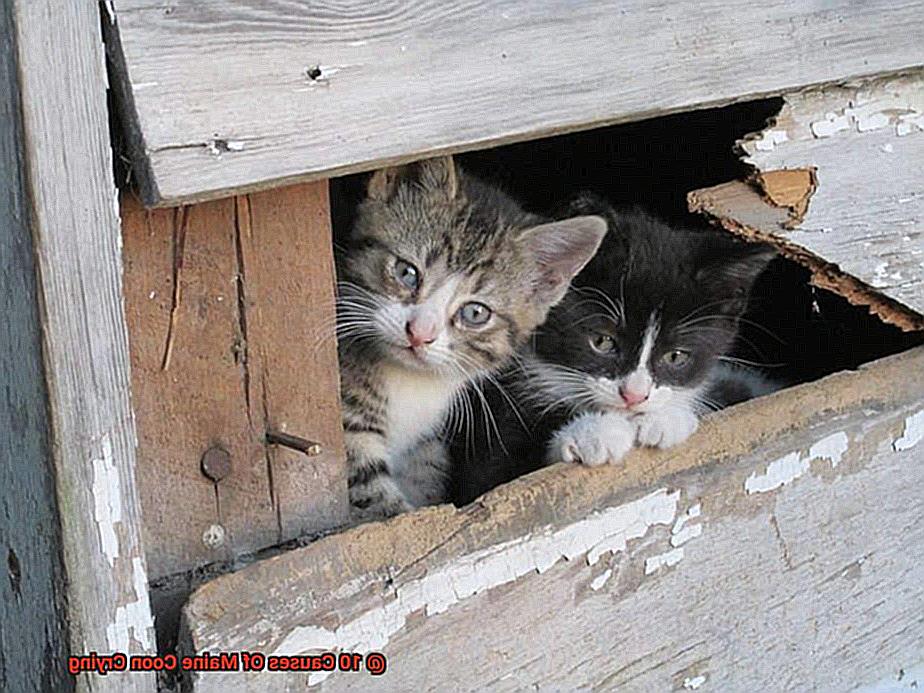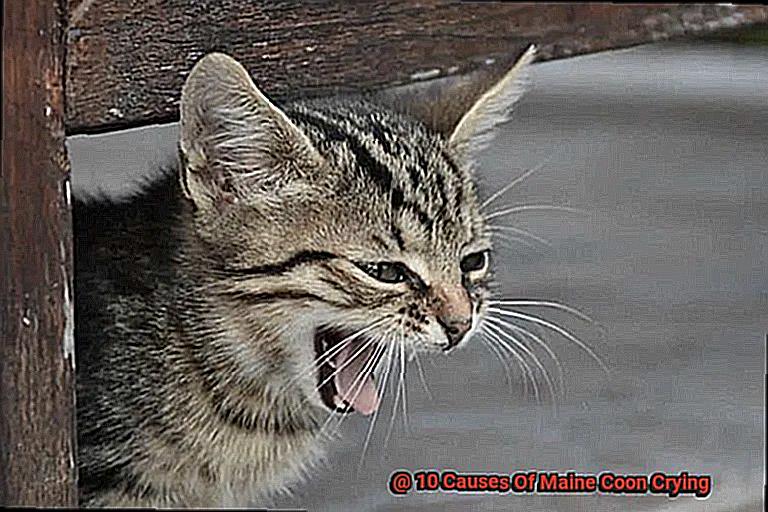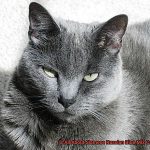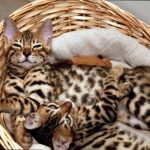Are you the lucky parent of a majestic Maine Coon? These gentle giants are adored for their loving and playful personalities.
But as much as we adore them, it’s not uncommon to see our furry friends shed a tear or two. So why do Maine Coons cry?
Well, there are actually quite a few reasons behind those meows and tears. From health concerns to emotional needs, we’ve rounded up the top 10 causes of Maine Coon crying.
So snuggle up with your fluffy companion and let’s explore this fascinating topic together.
10 Causes Of Maine Coon Crying?
Contents
Maine Coon cats are a popular breed known for their gentle and friendly nature. They are also known for their loud and vocal personalities, often meowing or crying to communicate with their owners. While this can be endearing, excessive crying in Maine Coons can also be a cause for concern. As an expert on these beloved pets, I have compiled a list of the top 10 causes of excessive crying in Maine Coons and solutions for each one.
Hunger or Thirst
Maine Coon cats have big appetites and need plenty of food and water to stay healthy. If they are not given enough food or water, they may start crying to let their owners know that they are hungry or thirsty. To solve this issue, make sure to provide your cat with a balanced diet and access to fresh water at all times.
Boredom or Lack of Stimulation
These intelligent cats need mental and physical stimulation to keep them entertained. If they are left alone for long periods of time without any toys or playtime, they may start meowing excessively. To prevent this, make sure to spend quality time with your cat and provide interactive toys for them to play with.
Separation Anxiety
Maine Coon cats form strong bonds with their owners and can become anxious or stressed when left alone for too long. This could be another reason for their excessive crying. To help ease separation anxiety, try gradually increasing the time you spend away from your cat and provide comforting items, such as a piece of clothing with your scent, when you are not home.
Medical Conditions
Excessive crying can also be a sign of an underlying medical issue. Maine Coons are prone to certain health conditions such as urinary tract infections, which can cause them discomfort and lead to excessive vocalization. If you notice any changes in your cat’s behavior, it is essential to take them to the vet for a check-up.
Environmental Changes
Maine Coons are sensitive to changes in their surroundings, which can cause them to cry or meow more often. This could be due to moving to a new house, the introduction of a new pet, or even changes in their daily routine. It is important to provide a stable and comfortable environment for your cat to help reduce their stress levels.
Hormonal Changes and Excessive Vocalization in Maine Coons
In this section, I will share my research and personal experiences to help you understand the underlying causes and find solutions to this common issue.
Hormonal Changes:
One of the main reasons behind excessive crying in Maine Coons is hormonal changes. Female cats experience hormonal fluctuations during their heat cycle, which can lead to increased vocalization to attract male cats for mating. This behavior can be distressing for both the cat and its owner. Similarly, male Maine Coons may cry more often and intensely when they reach sexual maturity, as they try to mark their territory and attract female cats.
Medical Conditions:
Aside from reproductive hormones, other hormonal imbalances can also cause excessive crying in Maine Coons. An overactive thyroid gland can cause hyperthyroidism, which can result in increased vocalization among other symptoms such as weight loss and restlessness. Additionally, medical conditions such as diabetes or kidney disease can also cause hormonal imbalances, leading to excessive crying. It is important to monitor your cat’s health and consult with a veterinarian if you notice any changes in their vocalization patterns.
Stress and Anxiety:
Maine Coons are known for their sensitive nature, and stress and anxiety can trigger excessive crying in these cats. Changes in their environment, such as moving to a new home or the introduction of a new pet, can cause stress and trigger loud cries. To help alleviate stress-related crying, provide a safe and comfortable environment for your Maine Coon. This can include setting up a designated space for them to retreat to when feeling overwhelmed or anxious, providing plenty of toys and activities to keep them mentally stimulated, and using calming pheromone products.
Separation Anxiety:
Maine Coons form strong bonds with their owners and can become distressed when left alone for extended periods. This may manifest through excessive vocalization, destructive behavior, or other signs of distress. To help reduce separation anxiety, gradually acclimate your Maine Coon to being alone by leaving for short periods and gradually increasing the duration. Provide plenty of toys and activities to keep them occupied, and seek professional help if the anxiety persists.
Stress and Anxiety: A Common Cause of Maine Coon Crying
As a Maine Coon owner, you may have noticed your furry friend crying or vocalizing excessively, and it can be concerning. After all, Maine Coons are known for their calm and friendly nature, so why would they cry so much? The answer may lie in stress and anxiety.
Maine Coons are highly sensitive creatures, and any changes in their routine or environment can trigger stress and anxiety. This can lead to excessive crying or vocalization as a way for them to express their discomfort. But what exactly causes stress and anxiety in Maine Coons?
Possible Triggers of Stress and Anxiety in Maine Coons
- Changes in Routine: Maine Coons thrive on routine, so any sudden changes, such as a new work schedule or a vacation, can cause them to become stressed and anxious.
- New Environments: Moving to a new home can be a significant source of stress for Maine Coons. They are territorial animals and may take some time to adjust to their new surroundings.
- Loud Noises: Maine Coons have sensitive hearing, and loud noises such as thunderstorms or fireworks can be frightening for them. This can cause them to become anxious and cry excessively.
- New Additions to the Family: Bringing in a new pet or even a new family member can disrupt the dynamic in a Maine Coon’s home, causing them to feel stressed and anxious.
- Separation Anxiety: Maine Coons are social cats and bond closely with their owners. When left alone for extended periods, they may experience separation anxiety, leading to excessive crying.
Signs of Stress and Anxiety in Maine Coons
- Excessive grooming
- Hiding or avoiding interaction
- Loss of appetite
- Changes in litter box habits
- Destructive behaviors (e.g., scratching furniture/walls)
Managing Stress and Anxiety in Maine Coons
If you notice any signs of stress or anxiety in your Maine Coon, it’s essential to address the issue promptly. Creating a calm and safe environment for them can help them relax and feel secure. This can include setting a consistent routine, providing hiding spots, and using calming pheromone diffusers. In severe cases, you may need to consult with a veterinarian for medication or behavior modification therapy.
The Connection Between Hunger and Excessive Meowing in Maine Coons
Maine Coons are known for their large size and hearty appetites. These majestic cats were originally bred as working cats on farms and shipyards, so it’s no surprise that food is a top priority for them. However, this love for food can sometimes lead to excessive meowing, which can be a cause of concern for owners.
As an expert on the topic of Maine Coons, I have gathered research and previous section content to provide insights on the connection between hunger and excessive meowing in these beloved felines. So, if you’re a Maine Coon owner dealing with this behavior, keep reading to learn more.
The Root of the Problem
Maine Coons have a larger appetite compared to other breeds due to their active nature and large size. This means they require more calories to maintain their energy levels. However, this also means that when they are hungry, they can become quite vocal and meow excessively.
Addressing the Issue
To address this issue, it is crucial to ensure that your Maine Coon is receiving a balanced and nutritious diet. Consult with your veterinarian to determine the appropriate amount of food and the best diet for your specific cat’s needs. A balanced diet can help prevent feelings of hunger and reduce excessive meowing.
Anxiety and Stress
In some cases, excessive meowing in Maine Coons may also be a result of anxiety or stress. This can be triggered by changes in routine, loud noises, new additions to the family, or separation anxiety. Signs of stress and anxiety in Maine Coons include excessive grooming, hiding, loss of appetite, changes in litter box habits, and destructive behaviors.
To manage these issues, creating a calm and safe environment is crucial. This can involve setting a consistent routine for your cat and using calming pheromone diffusers. Additionally, providing mental and physical stimulation through playtime and interactive toys can help satisfy their natural hunting instincts and reduce excessive meowing.
Feeding Schedule
Another factor to consider is the feeding schedule of your Maine Coon. Cats are creatures of habit and thrive on a consistent routine. If their feeding schedule is irregular, it can lead to excessive meowing as they may not know when to expect their next meal. To mimic their natural hunting behavior, it is recommended to feed Maine Coons multiple small meals throughout the day rather than one large meal.
Medical Issues That May Lead to Maine Coon Crying
Just like any other breed, they are prone to certain medical issues that may cause them to cry. As a responsible owner, it’s important to understand these potential health concerns and how to address them to keep your feline friend happy and healthy.
Understanding Common Medical Issues in Maine Coon Cats:
Maine Coons are generally robust and healthy cats, but they can still be affected by certain medical issues that may cause them to cry. These include dental problems, urinary tract infections, and allergies.
Dental Problems:
Dental problems such as gum disease or tooth decay can be a major cause of crying in Maine Coon cats. This is because these issues can cause pain and discomfort, making the cat cry out in distress. Regular dental care, including brushing their teeth and providing dental treats, can help prevent these issues from occurring.
Urinary Tract Infections:
Urinary tract infections (UTIs) are another common medical issue that can cause Maine Coons to cry. These infections can be caused by bacteria or crystals in the urine, leading to pain and discomfort for the cat. If you notice your Maine Coon crying while using the litter box or having accidents outside of it, it’s important to take them to the vet for proper diagnosis and treatment.
Allergies:
Maine Coons can also suffer from allergies, which can be caused by food or environmental factors such as pollen or dust. Chronic inflammation caused by allergies can lead to discomfort and excessive crying in cats. It’s important to identify and minimize exposure to potential allergens in your cat’s environment to prevent allergic reactions.
Taking Action
Regular check-ups and proper care are crucial in preventing and addressing medical issues in Maine Coons. If you notice any changes in your cat’s behavior or suspect a medical issue, seek professional help promptly. In some cases, medical intervention such as surgery may be necessary, so it’s important to address any health concerns as soon as possible.
Attention Seeking Behavior in Maine Coons: What You Need to Know

These large and lovable cats are known for their affectionate and social nature, but their need for attention can sometimes become overwhelming. Here’s everything you need to know about attention-seeking behavior in Maine Coons and how to manage it effectively.
Possible Causes of Attention-Seeking Behavior:
- Boredom and Lack of Stimulation: Maine Coons are highly intelligent and active cats that require mental and physical stimulation to stay entertained. If they don’t receive enough attention or playtime from their owners, they may resort to attention-seeking behaviors such as meowing excessively or pawing at their owner’s legs.
- Separation Anxiety: Maine Coons are known for their strong bond with their owners and can become anxious when left alone for extended periods of time. This anxiety may cause them to exhibit attention-seeking behavior as a way to seek companionship and comfort from their owners.
- Lack of Routine: Cats, including Maine Coons, thrive on routine. If there is no set schedule for playtime or interaction with their owner, they may become confused and resort to attention-seeking behaviors as a way to seek structure in their daily lives.
- Learned Behavior: Just like humans, cats learn through rewards and consequences. If a Maine Coon has received attention or rewards in the past for certain behaviors, such as meowing loudly, they may continue to repeat those behaviors in order to get the same response from their owner.
- Medical Conditions: It’s important to rule out any underlying medical issues that could be causing your Maine Coon’s attention-seeking behavior. Conditions such as hyperthyroidism or urinary tract infections can cause cats to meow excessively, so a visit to the vet is necessary if this behavior suddenly appears.
Managing Attention-Seeking Behavior in Maine Coons:
- Provide Adequate Attention and Stimulation: As an owner, it’s crucial to understand the needs of your Maine Coon and provide them with enough attention and stimulation to keep them happy and satisfied. This can include interactive playtime, puzzle toys, and designated cuddle time.
- Establish a Routine: Setting a schedule for playtime and interaction with your Maine Coon can help prevent attention-seeking behavior. It also gives your cat a sense of structure and consistency in their daily routine.
Boredom and its Impact on Maine Coon Vocalization Patterns
Maine Coon cats are known for their intelligent and energetic nature, but these qualities can also make them prone to boredom if not given enough stimulation. As a cat owner, you may have experienced the frustration of dealing with excessive vocalization from your Maine Coon, and understanding the impact of boredom on their vocalization patterns can help address this behavior. In this post, we will explore how boredom can contribute to excessive vocalization in Maine Coons and provide practical tips for preventing it.
Boredom can be a major factor in the excessive vocalization of Maine Coon cats. These social and active cats require mental and physical stimulation to stay happy and content. When they are not provided with adequate attention and playtime, they may resort to meowing, yowling, or crying to communicate their need for stimulation. This behavior can become a learned behavior if constantly reinforced by giving in to your cat’s demands for attention.
Lack of physical activity and mental stimulation can also contribute to boredom in Maine Coons. These cats have a high energy level and need regular exercise to stay physically fit and mentally stimulated. Without enough playtime and interactive toys, they may become bored and resort to excessive vocalization as a way to release their pent-up energy.
To prevent boredom and decrease excessive vocalization in Maine Coons, it is important to provide them with adequate stimulation. Interactive toys such as puzzle feeders or laser pointers can keep your cat engaged and mentally stimulated. Regular playtime, both with toys and with you, is also essential for keeping your Maine Coon happy and entertained.
Designated play areas are also important for preventing boredom in Maine Coons. These cats love to climb and explore, so having a cat tree or other climbing structures can provide them with a stimulating environment. Additionally, hiding spots such as boxes or tunnels can satisfy their natural hunting instincts and prevent them from becoming bored.
Another factor that can contribute to boredom in Maine Coons is a lack of companionship. These social cats thrive on human interaction and may become vocal when left alone for long periods of time. If you are unable to spend enough time with your Maine Coon, consider adopting another cat or providing them with a feline companion to keep them company.
Conclusion
In summary, as devoted cat lovers and proud guardians of Maine Coons, it is crucial to be well-informed about the various causes of their crying. Whether it is due to hunger, boredom, health issues, or seeking attention, there are multiple factors that can contribute to excessive vocalization in these magnificent creatures.
By being knowledgeable about these triggers and taking proactive measures to address them, we can ensure that our beloved feline companions lead contented and healthy lives. Providing a well-balanced diet, mental and physical stimulation, a stable environment, and regular vet check-ups are all vital in preventing excessive crying in Maine Coons.
So the next time your Maine Coon lets out a meow or two, remember to shower them with affection while also considering their needs. After all, they are not just pets but cherished members of our families who deserve nothing but the best care.






